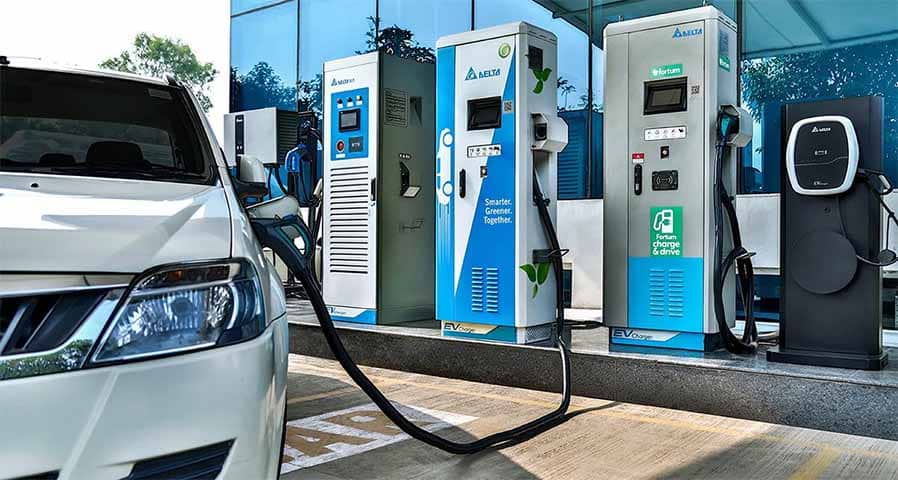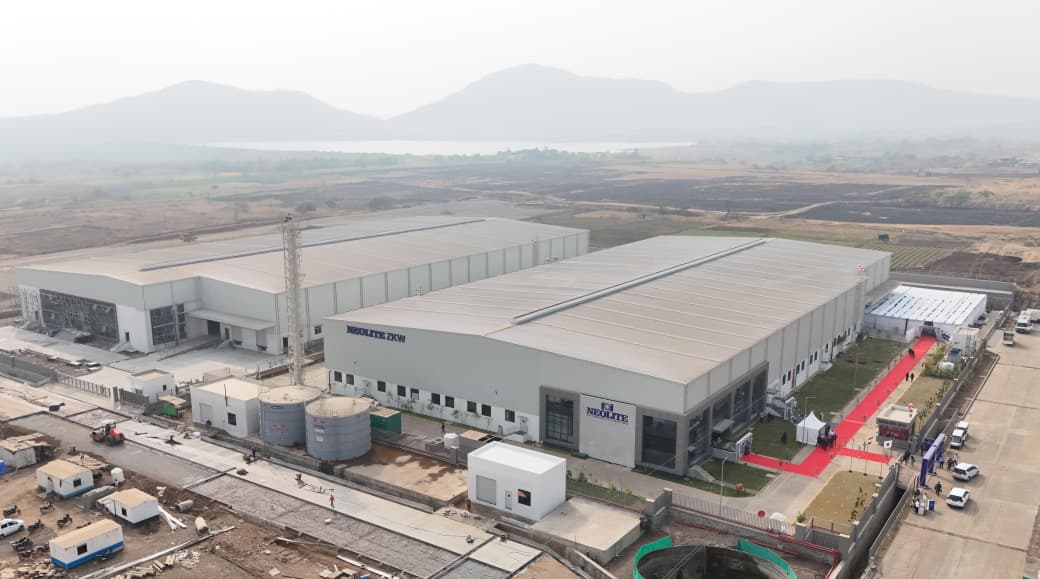The commercial vehicle industry is undergoing a transformative shift, driven by the growing demand for sustainable transportation solutions writes Arunkumar Ramakrishnan, Senior Engineering Manager -Electrified Powertrain Technology, TCI Hyderabad.
Electric vehicles (EVs) have emerged as a key cog in this transition, offering a cleaner, more efficient alternative to traditional Internal Combustion Engine (ICE) vehicles. This transition is taking place in the fields of alternative fuels, electrification, connected and autonomous technologies, and industrial modernisation as part of developments in the global automotive industry. The transportation sector accounts for about 11 per cent of India’s carbon emissions and is one of the major sources of pollutants in India. Therefore, it is crucial to actively adopt cleaner and greener alternative fuels in order to minimise air pollution levels brought on by dangerous fuels like diesel and the explosive development in automotive sales. Governments across the world are taking several initiatives to encourage the shift towards EVs. For instance, Germany has introduced government incentives that accelerate the purchase of EVs. Similarly, several European countries and China are speeding up their efforts to have charging infrastructure to support the growth of electric vehicles.
India is also not far behind in the goal of vehicle electrification. Taking account of the levels of pollution caused by vehicular emissions, the Indian government has pledged to cut down vehicular emissions to net zero by 2070. The support from the government is leading to the industry embracing cleaner and sustainable mobility solutions. The five-month extension to mandatory testing of commercial vehicles through automated testing stations for fitness testing of the vehicle has also been one of the initiatives by the Indian government for cleaner and greener vehicles. The development of programs like Product Linked Incentives (PLI) and Faster Adoption and Manufacturing of Hybrid and Electric Vehicles (FAME) by the central government has been a great enabler in the country’s shift towards clean mobility. In fact, Mahendra Nath Pandey, the Union Minister for Heavy Industries, recently stated that the PLI plan had been extended by a year. Today, we see that legacy players have started to enter the EV segment, and some have already established their dominance, thanks to the implementation of the aforementioned programs and a push towards the adoption of green mobility.
Considering the sales recorded in 2022, India has overcome Japan to take third place behind China and the US as the world’s largest market for automobiles. Leading EV producers from both nations are keen on establishing factories in the country. Recently, the Minister for Road Transport and Highways, Nitin Gadkari, also stated that India is the sixth largest manufacturer of commercial vehicles, and the country has sold 9.62 lakh units of commercial vehicles by 2022-23.
All these statistics indicate one thing and that’s that the transportation sector is an imperative piece in the country’s transition towards EVs. Global technology companies supplying systems for passenger cars and commercial vehicles are integrating technologies and solutions in developing electromobility solutions for all categories of vehicles. They are dedicated to developing innovative solutions that reduce emissions, increase energy efficiency, and improve overall performance for commercial vehicles. Electric mobility has evolved from being a niche concept to a game-changer with significant implications for businesses, the environment, and the global economy.
The Rise of ecommerce and urban logistics
The explosive growth of e-commerce platforms and the demand for same-day or next-day delivery have spurred the need for efficient urban logistics. This trend is driving the adoption of electric commercial vehicles, particularly electric vans and light trucks. These vehicles are well-suited for navigating crowded city streets, reducing emissions, and ensuring timely delivery. The significant increase in e-commerce, which has altered supply chain analytic and transportation management, is what is driving this development. E-commerce sectors are carefully considering the possibility of switching to electric vehicles due to the high fuel costs associated with cargo transportation. Another booster for commercial vehicles adopting green mobility is the recent indication by the Minister of Road Transport and Highways, Nitin Gadkari, proposing a 10 per cent tax on diesel vehicles and components across all segments. The transport sector relies heavily on diesel vehicles, which are a major cause of pollution, and if this initiative by the government comes through, it will be a huge push for the CV industry to shift gears to electric vehicles at a much faster rate.
Advancements in battery technology and cost competitiveness
One of the most significant trends in EVs is the rapid advancement of battery technology. Lithium-ion batteries, which power most electric commercial vehicles, have seen substantial improvements in energy density, charging speed, and overall performance. This has led to longer ranges, shorter charging times, and enhanced reliability in commercial EVs. The cost of manufacturing EVs and batteries has been steadily decreasing, making electric commercial vehicles more cost-competitive than their ICE counterparts. Lower operating and maintenance costs, coupled with government incentives, are accelerating the RoI for businesses adopting EVs.
Charging infrastructure expansion
The development of a robust charging infrastructure is a pivotal trend in supporting the growth of commercial EVs. Public charging networks, private charging stations, and innovative solutions like mobile charging units are being deployed to address range anxiety and facilitate seamless EV operations.
Sustainability and environmental regulations
Increasing concerns about air quality and climate change have led to stricter environmental regulations in many regions. Governments worldwide are incentivising or mandating the adoption of zero-emission vehicles. This has a direct impact on the commercial vehicle industry, encouraging fleets to transition to electric options to meet emissions targets. Another significant factor driving the commercial transportation sector’s interest in investing in electrification is the industry’s rising emphasis on Environmental, Social, and Governance (ESG).
Integration of telematics and fleet management
The integration of telematics and fleet management solutions is another critical EV trend. These technologies provide real-time data on vehicle performance, charging status, and driver behaviour. Fleet operators can optimise routes, improve efficiency, and ensure proper vehicle maintenance.
Global expansion of electric commercial vehicles
While EV adoption initially started in developed markets, it is now expanding globally. Emerging economies are recognising the benefits of electric commercial vehicles in reducing pollution and energy dependence. Manufacturers are increasingly targeting these regions with affordable and efficient EV options.
Resale value and TCO
As the resale market for used electric commercial vehicles matures, businesses are gaining confidence in the long-term viability of EVs. A better understanding of Total Cost of Ownership (TCO) factors in depreciation and resale value, makes electric commercial vehicles a more attractive investment.
In conclusion, the commercial vehicle industry is undergoing a profound transformation driven by electric vehicle trends. From the rise of e-commerce and advancements in battery technology to the expansion of charging infrastructure and sustainability regulations, EVs are shaping the future of how goods are transported, and services are delivered. Businesses that embrace these trends stand to benefit not only from cost savings and regulatory compliance but also from improved brand reputation and environmental stewardship. As electric commercial vehicles become increasingly accessible and versatile, they are poised to become the norm rather than the exception in the global logistics landscape. The transition to electric mobility is not just a trend; it’s a transformative shift with far-reaching implications for the commercial vehicle industry suppliers and the world at large.











Leave a Reply